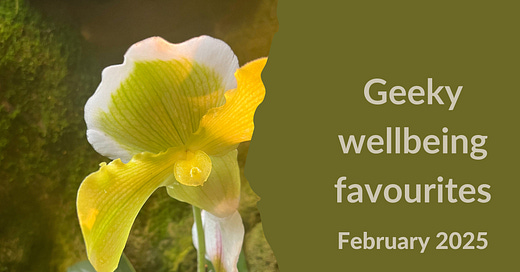You know when you are middle-aged when you go out for dinner with friends who you haven’t seen in a while, and you talk about various check-ups and tests you have had, and compare your red blood cell counts.
Perhaps it’s my particular bubble that very much cares about health and wellbeing, and that might not translate to others. Case in point – one of them is currently at a longevity and wellness conference, where apparently you can learn how to live longer from various gurus, and health and tech businesses. I’m sure at least some of it is legitimate despite the ridiculous price tags ($200 for a yoga nidra session anyone? Perhaps I’m missing a trick here).
And anyway, who am I to judge? I’ve been wearing an Oura ring for the past 4 years (a trend that has now been catching on everywhere, so I guess I was an early adopter) alongside an Apple watch, and I love looking at all the data that it collects and trying to figure out what helps me stay healthy. I’m still lingering over a Zoe subscription, or at the very least getting a Lingo.
I suppose the thing that bothers me is how easy it is to science-wash anything and sell it to loads and loads of people with disposable (and non-disposable) money. Just use some jargon (so people don’t understand and to add legitimacy) and add a couple of claims that no one will ever challenge you about and will get repeated again and again until they become truth (I’m going to avoid repeating that yoga nidra myth, but you all know what I’m talking about).
Excellent podcast on the very topic of science-washing in the context of mental health apps. I am absolutely horrified by this cortisol app.
Another podcast looking specifically at the trend of hormone rebalancing, with a focus on cortisol – wtf is it with cortisol, when did it become the IT hormone
So basically, please don’t believe everything you hear!
Enjoying this post? You can now show your gratitude with a teeny tiny Patreon subscription.
Workshops etc
Untangling: release your neck and shoulders
Join me on the 16th of February for a neck and shoulder special! (Plus there will be chocolate, but I didn’t want to use that as a bribe) The workshop will take place at MoreYoga in Winchmore Hill, which is easily accessible from central London (eg Old St, Moorgate) by train. Paid subscribers get a discount (contact me for your code). Would love to see you there.
Yoga and immunity
Melanie and I are joining forces again this year to run workshops on yoga and the immune system. Dates are still TBC, but topics include (based on your feedback):
Depression, inflammation and yoga
Sleep and the immune system
The gut microbiota
Stay tuned for more info and to book.
Thank you paid subscribers for supporting me! You can upgrade your subscription to a paid one to get full access to all content. Expect to read more on longevity, healthspan and inflammation.
Mind–body science highlights
Yoga, meditation and telomeres
Speaking of longevity – this review article looks at research on mind–body practices and their effects on protecting telomeres, which are little caps on the ends of chromosomes and which protect them from damage (their link with ageing is that telomeres get shorter every time a cell divides, until at some point their are complete gone and the cell dies. More on this on a longer, subscriber-only post). There is some evidence that mind–body practices have protective effects on telomeres, likely through their effects on inflammation and stress, although as usual the research is not amazing so difficult to draw conclusions.
Breathing exercises for post-Covid
This randomised controlled trial found that Bhramari and Sheetali pranayama both led to improvements in lung function and heart rate variability among post-Covid patients, compared to baseline and compared to the control group. Participants practiced daily for 30 minutes (so not an insignificant amount of time).
Precision exercise prescription for health
This editorial argues that there is scope for precision and personalised medicine to extend to what exercise will be most effective for the individual and their circumstances. It covers a wide range of studies, including those showing that yoga, tai chi and qi gong can help to reduce inflammation, as well as the effects of more intensive physical activity like cycling on cognitive performance.






